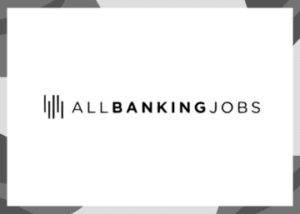Donald Trump’s focus on revitalizing America’s infrastructure has been a major talking point of his political career. As part of his broader economic agenda, the proposal to allocate significant funding for public infrastructure projects, including roads, bridges, and other critical national assets, could have wide-reaching implications for banking professionals, particularly those in project financing roles.
With an emphasis on revitalizing the nation’s infrastructure, professionals in project finance, lending, and investment banking may find new opportunities in managing and funding these large-scale projects. Here’s how Trump’s infrastructure plans could open doors for professionals looking to make an impact in the world of project finance.
1. A Surge in Infrastructure Investments
Trump’s infrastructure plan calls for an investment of trillions of dollars into the nation’s roads, bridges, railways, and airports. While much of this funding will come from public sources, there will also be significant opportunities for private sector involvement. Private investors and financial institutions will play a crucial role in financing these projects, creating a demand for professionals skilled in project finance, risk assessment, and financial structuring.
For banking professionals, this increased investment means more opportunities to work on large-scale infrastructure deals, ranging from advising clients on funding options to managing the financial aspects of these projects.
2. Increased Need for Project Finance Professionals
As large infrastructure projects require significant financing, the role of project finance professionals becomes critical. These individuals are responsible for structuring, arranging, and managing the funding for these projects, often involving a mix of debt, equity, and public-private partnerships. Trump’s proposed infrastructure plan could result in a surge of opportunities for project finance specialists, particularly those with experience in government-backed projects and public-private partnerships (PPPs).
Professionals with expertise in large-scale project finance deals will be in high demand, as these roles require a strong understanding of how to structure financing deals, assess risks, and work with both public entities and private investors. With significant public funding available, professionals who can navigate the regulatory and policy landscape will have an edge.
3. Opportunities in Green Infrastructure Projects
One area of Trump’s infrastructure focus is the modernization of the nation’s energy systems, which includes projects aimed at enhancing energy efficiency and supporting renewable energy initiatives. Green infrastructure projects—such as building energy-efficient buildings, upgrading the electric grid, and investing in renewable energy—have become increasingly important in the U.S. economy.
This growing interest in sustainable infrastructure could create new opportunities for professionals in project finance with a background in renewable energy, sustainability, and green finance. Banking professionals with expertise in financing eco-friendly projects or renewable energy solutions may find a wealth of job opportunities, as both the public and private sectors look for ways to align infrastructure investments with climate goals.
4. Risk Management in Large-Scale Infrastructure Projects
Infrastructure projects often come with substantial risks, especially when it comes to cost overruns, delays, and regulatory challenges. With Trump’s push to speed up infrastructure development, professionals in risk management, particularly those specializing in large projects, will play an essential role.
Bankers with a strong background in risk management will be in high demand to assess and mitigate potential financial risks involved in these infrastructure projects. Additionally, professionals skilled in political risk assessment, particularly those who understand the potential impact of Trump’s policies on the regulatory environment, will be able to advise financial institutions and investors on how to navigate these risks.
5. Private-Public Partnerships (PPPs): A Growing Trend
Trump’s infrastructure plan includes a focus on public-private partnerships (PPPs) to fund and deliver infrastructure projects. These partnerships typically involve private companies working alongside the government to finance, build, and operate major projects. PPPs are becoming a more popular method for funding large-scale infrastructure projects, and they offer lucrative opportunities for banking professionals involved in structuring deals and managing complex financing arrangements.
Project finance bankers will find increasing opportunities in structuring these types of partnerships, as they require specialized knowledge in both government contracts and private sector financing. Professionals who can bridge the gap between the public and private sectors will be highly sought after as Trump’s infrastructure agenda continues to unfold.
6. Emerging Roles in Infrastructure Advisory and Financing
As the demand for infrastructure projects increases, so does the need for advisory roles in the banking sector. Investment bankers and financial advisors who specialize in infrastructure will be called upon to help municipalities, state governments, and private companies navigate the financial complexities of major projects.
These roles can involve providing advice on the best financial structures, helping to identify suitable sources of funding, and managing the complexities of public-private partnerships. The demand for infrastructure advisory services will rise as Trump’s infrastructure plan progresses, offering a range of job opportunities for banking professionals interested in this growing sector.
7. Training and Skill Development for Future Project Finance Professionals
As more professionals seek to capitalize on the opportunities in project financing, there will be a growing need for training and skill development in the field. Bankers and financial professionals will need to stay updated on the latest trends in infrastructure financing, particularly when it comes to public-private partnerships, risk management, and regulatory issues.
Financial institutions will look for professionals who have a deep understanding of the infrastructure market, including the ability to navigate complex financial structures, government regulations, and emerging trends in green energy. As such, certifications in project finance or renewable energy finance could become valuable for those looking to enter or advance in this career path.
Conclusion
Trump’s focus on infrastructure development presents a wealth of new opportunities for banking professionals, especially those in project finance. The surge in infrastructure investment, the rise of green projects, and the growing importance of public-private partnerships will require skilled professionals who can navigate the financial and regulatory complexities of these projects. As the infrastructure sector booms, those with expertise in project finance, risk management, and public-private partnerships will be in high demand.
For those looking to capitalize on this trend, All Banking Jobs can be a valuable resource in discovering the latest career opportunities in infrastructure finance. Whether you’re an experienced project finance professional or just starting out, the infrastructure boom offers an exciting avenue for career growth in the banking sector.






